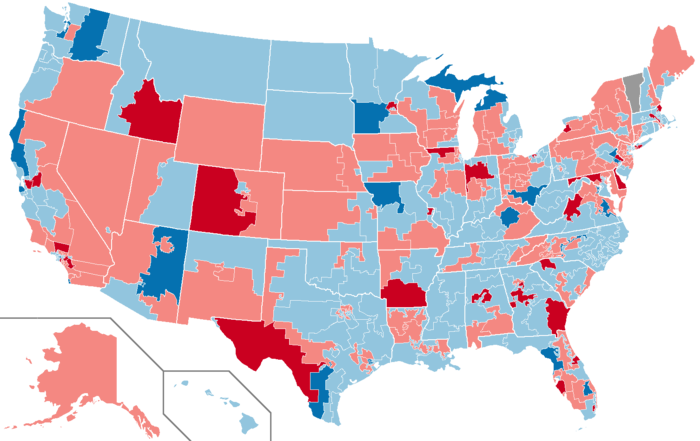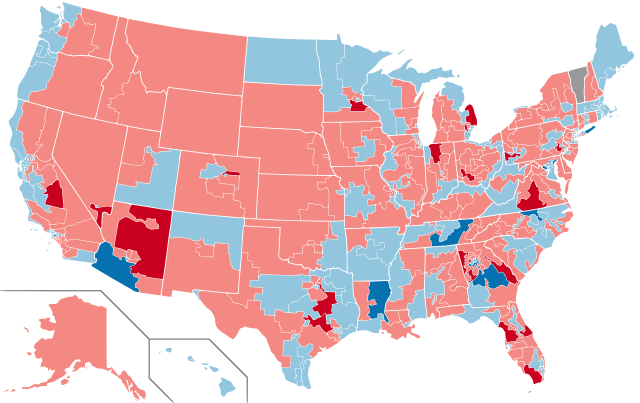His Presidency also has a lot of lessons for our ongoing Presidential Election on what is likely to happen in 2021-2023 assuming a Democrat wins the election.
When people discuss major presidents, certain names always come up, Washington, Lincoln, and both of the Roosevelts are usually the top names historians list as the most important Presidents in American history.
Presidents can both follow the lead of previous presidents, do various levels of impacts on our policies, and lead major realignments in American history. Our system has the Electoral College which is unique in the world. Such are the consequences of being the prototype.
There have been several types of electoral college maps over history, and how various regions have voted.
As time goes on, parties have various levels of support which goes up and down.
I have written about the Electoral College a lot in the past, but today I want to focus on one President in particular, and that is President Clinton.
Before we understand President Clinton we need to understand the political environment as it existed when he became President. Republicans had controlled the Presidency for 19 of the previous 23 years in American history. Richard Nixon started the drug war, and President Ford did as well a job as anyone could given the legacy he was inheriting. President Carter was stonewalled by congress, preventing most of his reforms from occurring. The real challenges President Clinton faced came from two of our most corrupt Presidents in American history, those of Reagan and Bush. He started with an economic policy which moved money from the working class to the 1%, he committed treason during the Iran-Contra affair, he accelerated Nixon's War on Drugs, crashed our economy during the first term, and was supported by the media all the way through, through a policy of charm and hiding information on the corrupt actions he was committing which came out later. He spurred the empowerment of the righteous right, and hurt American culture. Bush was similar to Ford in that his Presidency was not wrecked by scandals as much as his predecessor, and a number of good pieces of legislation but he also pardoned many criminals from the administration of which he was second in command. Neither man deserves to be well remembered by history.
The Clinton presidency started with the first Democratic Trifecta in 12 years. This led to many very important reforms, the Family and Medical Leave Act, National Voter Registration Act, Brady Handgun Violence Prevention Act, Violence Against Women Act, and Federal Assault Weapons Ban. Compared to any congress under the Reagan or Bush administrations this was a monumental year. The most important bill of course was Hillarycare, which failed because of opposition which was well organized to get congressional Democrats onboard. It's a complex story, and deserves its own article. Despite the failure of Hillarycare, I do believe that it was still a very successful term in other respects. After that session however, Clinton signed into law many laws such as the Defense of Marriage Act, and Gramm-Leach-Bliley Act which he should have vetoed.
In terms of long term impact, I think the first Session under President Clinton was a success, and he did make America a more free country in the first two years. His remaining 6 years were an absolute disaster. There were many times where he signed laws which he should have vetoed, and by signing almost everything which came across his desk he significantly reduced his power, giving Congress basically complete control. This is despite the fact that the Democrats won more votes in the 1996 House election than Republicans by a small margin. If he had taken this and forced Gingrich to play hardball he could have increased turnout among Democratic Voters during an era when the map was quickly evolving.
One important part to recognize about the transition which was happening in the 1990s was the elimination of Southern Democrats. In his first two sessions, the Democrats controlled a large number of seats from former Confederate states.
 |
| 1992 election results |
 | |
| 2002 election results |
 |
| 2012 election results |
In terms of President Clinton's actions, I believe his first two terms paved the way for President Obama to pass the Affordable Care Act in 2010, through the lessons learned. It's failure meant they failed to galvanize Democratic voters and enraged Republican voters so that Gingrich could make his Contract with America in 1994. His remaining 6 years in office were I believe a lost opportunity. If he had vetoed more legislation it would have forced the Republicans to compromise with him, and it would have galvanized Democratic Voters in 2000 showing a clear choice between their two options. It would have also helped galvanize voters in the House elections which would have improved his chances at having more Democrats in 1998.
The real barrier in 1998 was the same as what Obama dealt with, where due to gerrymandering the Republicans were able to pick up a clear majority (over 50% of the seats) with not even a plurality (more than any other party) of the vote. This creation of mostly safe seats benefits rural areas while creating a disadvantage for the majority of Americans who live in urban areas. This significantly reduced the ability of Presidents Clinton and Obama to pass the legislation they both campaigned and pushed for.
We are likely to see a continuation of this pattern in 2023 after the first midterms from whichever candidate succeeds Trump. The Republican machine which consists of Fox News and other right-wing channels is going to push against the Democratic Congress in the 2022 elections, focusing on swing districts. On top of this, many publications pandering to liberal-leaning voters are going to be rattling on about how they didn't get Medicare for all passed, and are shills because we don't live in Utopia passed. Jacobin is one such example. Both of these extreme publications are designed to get people who agree with the idea that everyone should have high quality health care and oppose tyrannical governments such as Putin to convince them that whoever wins is not as liberal as they claim and will continue to whitewash foreign despots. The goal will not be to get Democratic voters to vote for the Republican, but for them to abstain altogether.
Now, a few things are different about the midterms in 3 years. Democrats took a lot of important Governorships a year ago, and this is going to significantly improve our chances of having fair congressional and legislative maps.
 |
| Current US Governor affiliation |
Ultimately however, we need to reform our election systems to eliminate gerrymandering, which is what FairVote is working on.
Conclusion
- Clinton did a decent job when he had a trifecta.
- Clinton failed to stand up for his values as much as he could when facing a Republican congress.
- The next President will likely start their term with a divided Congress.
- A President facing an obstinate congress needs to stand up for their values, otherwise they risk alienating the voters they need in order to get a majority in Congress or be succeeded by a President of their party.
- Gerrymandering can significantly weaken the power of any Democratic President.
- Clinton served during a time of enormous political change where the parties were solidifying behind national platforms in a way like never before.
Predictions for the next President
- The next President will have to work with a Republican Senate for at least their first session.
- There will not be a major health care reform bill in the 117th congress because of Republican opposition in the Senate.
- Mitch McConnell will likely continue to oppose basically every bill.
- There are several very good potential pickups for the Senate in 2022, particularly Ohio, Florida, and Pennsylvania. If Democrats can win these three states we might have a slim majority in the Senate of 53 or 54 seats in 2023, which will make it possible to pass legislation.
- The current Democratic debates are projecting for a fantasy world where they would have a filibuster proof majority in the Senate. This is unfortunately unrealistic. We will need a candidate who is able to work with Republicans as much as possible to get good legislation passed, bad legislation blocked, and get voters excited so that we can take the Senate in 2022.
The biggest lesson of all from the Presidencies of Presidents Clinton and Obama is that we need to reform our election system to eliminate gerrymandering to ensure that every vote counts. No Representative should have no serious competition for our seat.



